
Larry David Norman was an American musician, singer, songwriter, record label owner, and record producer. He is considered to be one of the pioneers of Christian rock music and released more than 100 albums.

No Dice is the third studio album by British rock band Badfinger, issued by Apple Records and released on 9 November 1970. Their second album under the Badfinger name, but their first official album under that name, and first to include guitarist Joey Molland, No Dice significantly expanded the British group's popularity, especially abroad. The album included both the hit single "No Matter What" and the song "Without You", which would become a big hit for Harry Nilsson, and later a hit for Mariah Carey.

Rick Derringer is an American musician, producer, and songwriter. He gained success in the 1960s with his band, the McCoys. Their debut single, "Hang on Sloopy", became a number-one hit in 1965 and is now regarded as a classic track from the garage rock era. The McCoys had seven songs chart in the top 100, including covers of "Fever" and "Come on Let's Go".

Michael Harrison Sweet is an American musician; he is the co-founder, songwriter, guitarist and lead singer of the metal band Stryper. He has also had a successful solo career, and briefly served as singer and guitarist for Boston from 2007 to 2011.
Solid Rock Records is a record label started by Larry Norman. It was established in 1975 to distribute his work after he had been released by Capitol Records. Solid Rock had a distribution deal until 1980 with Word Records.

Mama Said is the second studio album by American rock musician Lenny Kravitz, released in April 1991 by Virgin Records. Guns N' Roses guitarist Slash co-wrote and played on the song "Always on the Run". He also played on the song "Fields of Joy". The song "All I Ever Wanted" was co-written by Sean Lennon.

Bleed American is the fourth studio album by the American rock band Jimmy Eat World, released on July 24, 2001, by DreamWorks Records. The album was re-released as Jimmy Eat World following the September 11 attacks; that name remained until 2008, when it was re-released with its original title returned.
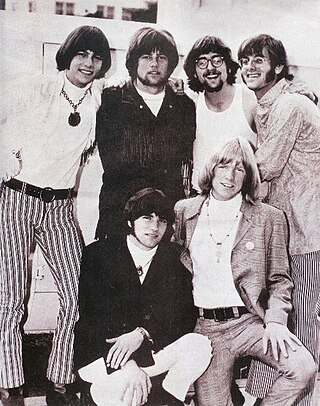
People! was an American one-hit wonder rock band that was formed in San Jose, California in 1965. Their greatest chart success came with their summer hit single "I Love You". The song, written by The Zombies bass guitarist Chris White, rose to number one in Japan (twice), Israel, Australia, Italy, South Africa, and the Philippines, and peaked at No. 14 on the Billboard Hot 100 in June 1968. At various times, band members have included Robb Levin, Geoff Levin, Albert Ribisi, John Riolo, David Anderson, Larry Norman, Gene Mason, Denny Fridkin, Tom Tucker, Bruce Thomas Eason, John Tristao, Steve Boatwright, and Rob Thomas. On October 19, 2007, People! was inducted into the San Jose Rocks Hall of Fame.
Grammatrain is an American rock band from Seattle, Washington that formed in 1994. The band was active in the Christian rock industry during the 1990s. Grammatrain disbanded in 1998 and reunited in 2009. According to drummer Paul Joseph Roraback in a 1995 interview, the band's name came from a poem he wrote about his grandmother called "Grandma's Train", which was the band's original name before changing it to Grammatrain shortly after forming.
"The Warmth of the Sun" is a song written by Brian Wilson and Mike Love for the American rock band the Beach Boys. It was released on their 1964 album Shut Down Volume 2 and as the B-side of the "Dance, Dance, Dance" single, which charted at number eight in the United States and number twenty four in the United Kingdom. Brian Wilson produced the song, and the rest of the album.

The Works is the eleventh studio album by the British rock band Queen. It was released on 27 February 1984 by EMI Records just shortly after recording for the album had been completed in the United Kingdom and it is the band's first studio album to be released by Capitol Records in the United States. After the synth-heavy Hot Space (1982), the album saw the re-emergence of Brian May and Roger Taylor's rock sound, while still incorporating the early 80s retro futuristic electronic music and New York funk scenes. Recorded at the Record Plant Studios in Los Angeles, California, and Musicland Studios in Munich, Germany, from August 1983 to January 1984, the album's title comes from a comment Taylor made as recording began – "Let's give them the works!".

"Be-Bop-a-Lula" is a rockabilly song first recorded in 1956 by Gene Vincent and His Blue Caps.
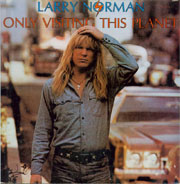
Only Visiting This Planet is a Christian rock album recorded by Larry Norman in 1972. The album was selected as the second-best album in CCM Magazine's The 100 Greatest Albums in Christian Music. In April 2014 the album was announced as one of 25 sound recordings inducted for 2013 into the Library of Congress National Recording Registry, that preserves as "cultural, artistic and/or historical treasures, representing the richness and diversity of the American soundscape", making it the first Christian rock album chosen for the registry.
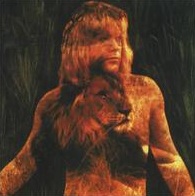
So Long Ago the Garden is an album recorded by Larry Norman, released in 1973. It is the second album in what came to be known as his "trilogy," which began with the album Only Visiting This Planet and concluded with In Another Land. So Long Ago the Garden was controversial because Norman's previously blatant Christian beliefs were more veiled on this album. In the song "Shot Down", on the album In Another Land, Norman responded to accusations by fellow Christians that he had abandoned his faith in search of fame and fortune.
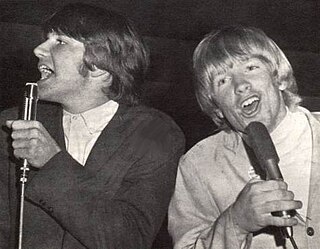
Recording since 1966, first as a lead singer for the group People! and then as a solo artist, Larry Norman is noted for his extensive career as well his attention to Christian subject matter. His music was released on both mainstream and independent labels, including his own Solid Rock Records. During his career his work appeared on over 100 albums, concert bootlegs, and compilations.

Nathaniel Joseph Ruess is an American singer and songwriter. He formed the indie pop band fun. in 2008, for which he serves as lead vocalist. He also does so for the indie rock band the Format, which was formed prior in 2002.

Stryper is an American Christian metal and heavy metal band from La Mirada, California. The group's lineup consists of Michael Sweet, Oz Fox (guitar), Perry Richardson (bass), and Robert Sweet (drums).
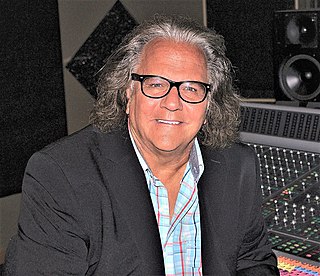
Joseph Thomas was an American producer, businessman, multi-instrumentalist, and songwriter based in Illinois. He was known for musical collaborations and subsequent lawsuits pertaining to musician Brian Wilson, co-founder of the Beach Boys. Thomas was producer and director of the PBS music program Soundstage for WTTW.

Roots: John Lennon Sings the Great Rock & Roll Hits is a rare mail-order album issued by Adam VIII consisting of rough mixes of John Lennon's Rock 'n' Roll album. It was available through television sale for three days in January 1975 before Lennon and Apple/EMI pulled it off the market. Lennon then rush-released his "official" version in February 1975.

In a Special Place – The Piano Demos for This Is the Sea is a compilation album by Scottish-Irish folk rock band The Waterboys. It was released in 2011 by Chrysalis and Capitol (US). The album reached No. 196 in the UK Top 200 Albums Chart.

















